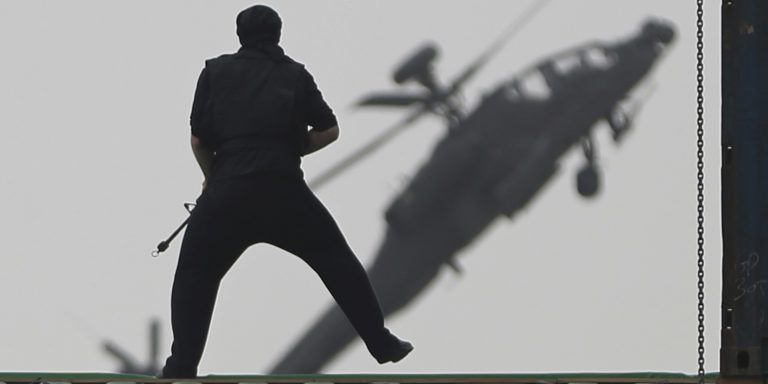INTELBRIEF
June 25, 2018
IntelBrief: Gulf State Influence in East Africa

- Countries in East Africa have helped several Gulf states counter Iran’s regional influence, but the region has become an arena for the Gulf states to try to outmaneuver each other.
- The Gulf states are using their ample wealth to build up military and commercial infrastructure and recruit allies and military manpower in East Africa.
- Infrastructure in the Horn of Africa is facilitating the Saudi Arabia-led coalition’s battle against the pro-Iranian Houthi rebels in Yemen.
- The Gulf states have become embroiled in the politics of the countries in East Africa, and they face competition from other powers such as China and Turkey.
.
In an attempt to counter Iran’s regional influence, several Gulf states have become involved economically, politically, and militarily in the countries of East Africa. East Africa is in close proximity to Yemen, where a coalition led by Saudi Arabia and the United Arab Emirates (UAE) is battling against Zaidi Shi’a Houthi rebels armed by Iran. Leaders in East Africa have welcomed this interference because they are in need of the Gulf states’ ample wealth to recruit allies. In recent years, Saudi Arabia and the UAE offered sufficient financial incentives to persuade Sudan to align with them and sever its alliance with Iran. That success was significant in not only reducing Iran’s influence in the region directly, but also in paving the way for Sudanese troops to become part of the coalition effort against the Houthis.
The Gulf states have viewed countries in the Horn of Africa, in particular, as pivotal to their efforts in Yemen and for other strategic objectives, although their inevitable involvement in political disputes has sometimes caused setbacks. In 2015, Saudi and UAE forces deployed to Djibouti to support their campaign in Yemen but disputes over financial arrangements caused both countries to leave Djibouti and shift their focus to neighboring countries. That exit paved the way for China, which wants to secure key shipping lanes in the region, to increase its influence there. China subsequently built a military base in Djibouti that became operational in 2017.
Elsewhere in the Horn, Emirati firms developed ports in the semi-autonomous regions of Somaliland and Puntland, and UAE troops built a military base in Berbera, Somaliland. However, the involvement in these breakaway regions ran the UAE afoul of the national government in Somalia, where the UAE had been training Somali counter-terrorism forces against the Al Qaeda-affiliated Al Shabaab terrorist group. A contributing factor to the UAE’s rift with the government in Mogadishu was its ties to Qatar, with which Saudi Arabia and the UAE have been at odds with since mid-2017, as well as to Turkey, which is allied to Qatar. Turkey manages Mogadishu’s seaport and airport – the source of 80% of the government’s revenues.
In further efforts to build infrastructure in the Horn, in September 2015, the UAE constructed the Port of Assab in eastern Eritrea. The base has been used by the Saudi-led coalition to retake Yemen’s city of Aden in 2015, and as a staging area for Sudanese troops to deploy in the current offensive to recapture the key port of Hodeida from the Houthis. Eritrea previously had close ties to Qatar but, apparently lured by Saudi and UAE offers of investment, broke with Doha and aligned with the Saudis and Emiratis.
Notwithstanding the infighting among the Gulf states in East Africa, the big loser in that region has been Iran, which has lost allies as well as the opportunity to encircle its Gulf antagonists. These trends suggest that the Gulf states have been relatively successful in translating their wealth into significant strategic gains in East Africa, even as they fail to make meaningful progress in Syria, Iraq, Yemen, and Lebanon.
.
For tailored research and analysis, please contact: info@thesoufancenter.org
[video width="960" height="540" mp4="https://thesoufancenter.org/wp-content/uploads/2018/06/IB-0625-.mp4" poster="https://thesoufancenter.org/wp-content/uploads/2018/06/AP_17117317362576.jpg"][/video]